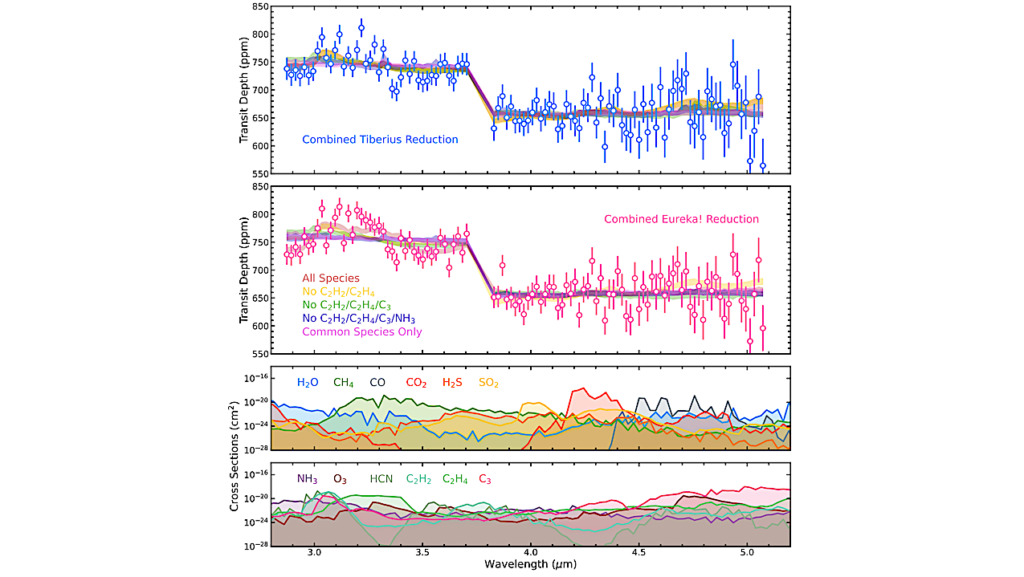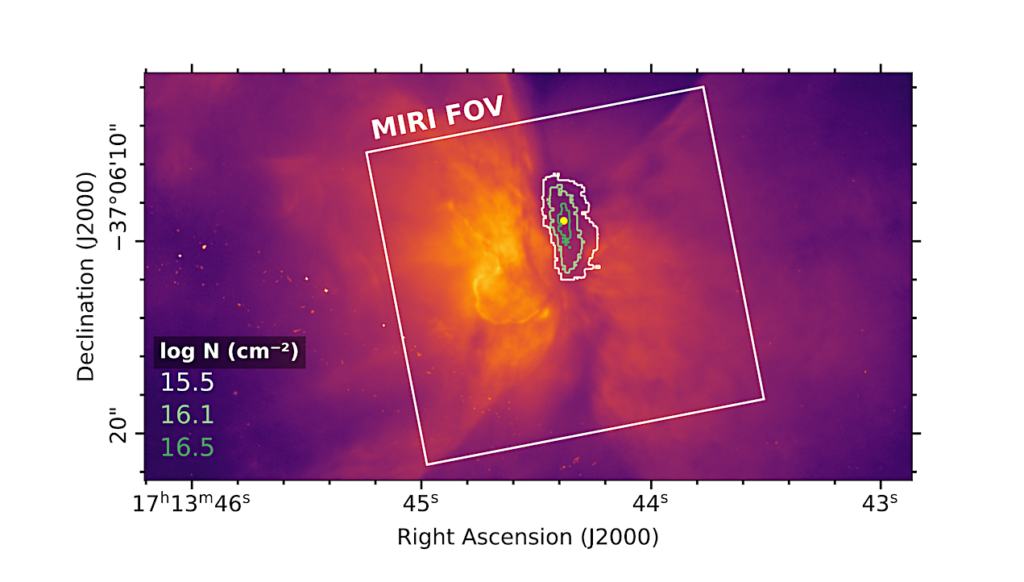Phosphate, A Key Building Block Of Life, Found On Saturn’s Moon Enceladus

An international team including a University of Washington scientist has found that the water on one of Saturn’s moons harbors phosphates, a key building block of life. The team led by the Freie Universität Berlin used data from NASA’s Cassini space mission to detect evidence of phosphates in particles ejected from the ice-covered global ocean of Saturn’s moon Enceladus.
The team found that phosphate is present in Enceladus’ ocean at levels at least 100 times higher — and perhaps a thousand times higher — than in Earth’s oceans.
“By determining such high phosphate concentrations readily available in Enceladus’ ocean, we have now satisfied what is generally considered one of the strictest requirements in establishing whether celestial bodies are habitable,” said third author Fabian Klenner, a UW postdoctoral researcher in Earth and space sciences. While at Freie Universität Berlin, Klenner did experiments that revealed the high phosphate concentrations present in Enceladus’ ocean.
One of the most profound discoveries in planetary science over the past 25 years is that worlds with oceans beneath a surface layer of ice are common in our solar system. These ice-covered celestial bodies include the icy moons of Jupiter and Saturn — including Ganymede, Titan and Enceladus — as well as even more distant celestial bodies, like Pluto.
NASA’s Cassini mission explored Saturn, its rings and its moons from 2004 to 2017. It first discovered that Enceladus’ harbors an ice-covered watery ocean, and analyzed material that erupted through cracks in the region of the moon’s south pole.
The spacecraft was equipped with the Cosmic Dust Analyzer. which analyzed individual ice grains emitted from Enceladus and sent those measurements back to Earth. To determine the chemical composition of the grains, Klenner used a specialized setup in Berlin that mimicked the data generated by an ice grain hitting the instrument. He tried different chemical compositions and concentrations for his samples to try to match the unknown signatures in the spacecraft’s observations.
“I prepared different phosphate solutions, and did the measurements, and we hit the bullseye. This was in perfect match with the data from space,” Klenner said. “This is the first finding of phosphorus on an extraterrestrial ocean world.”
Planets with surface oceans, like Earth, must reside within a narrow range of distances from their host stars (in what is known as the “habitable zone”) to maintain temperatures at which water neither evaporates nor freezes. Worlds with an interior ocean like Enceladus, however, can occur over a much wider range of distances, greatly expanding the number of habitable worlds likely to exist across the galaxy.
In previous studies, the team at the Freie Universität Berlin determined that Enceladus harbors a “soda ocean,” rich in dissolved carbonates, that also contains a vast variety of reactive and sometimes complex carbon-containing compounds. The team also found indications of hydrothermal environments on the seafloor. The new study now shows the unmistakable signatures of dissolved phosphates.
“Previous geochemical models were divided on the question of whether Enceladus’ ocean contains significant quantities of phosphates at all,” said lead author Frank Postberg at Freie Universität Berlin. “These measurements leave no doubt that substantial quantities of this essential substance are present in the ocean water.”
To investigate how the ocean on Enceladus can maintain such high concentrations of phosphate, geochemical lab experiments and modeling included in the new paper were conducted by a Japan-based team led by second author Yasuhito Sekine at the Tokyo Institute of Technology and a U.S.-based team led by fourth author Christopher Glein at the Southwest Research Institute in San Antonio, Texas. Other authors are from Germany, the U.S., Japan and Finland.
Detection of phosphates originating from Enceladus’s ocean, Nature (open access)
Astrobiology








